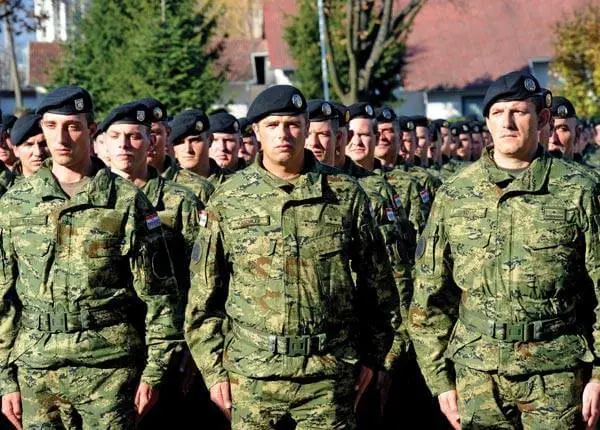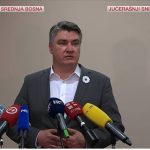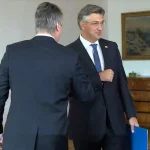The 26th anniversary of the Operation Storm (Oluja) is afoot. Marked on August 5, this operation back in 1995 returned every bit of occupied territory back to Croatia, apart from Eastern Slavonia. The event took place during the 1990s in the war Croats refer to as the Homeland War (Croatian: Domovinski rat).
In the light of the anniversary that is set to take place this Thursday, the Croatian branch of Youth Initiative for Human Rights (YIHR) has organised an online panel entitled ”The 26th anniversary of Operation Storm: Challenges and obstacles for reconciliation” this Wednesday.
As the YIHR website announces, the panel, which will be held via Zoom, will feature a debate moderated by the initiative’s coordinator of programmes for justice and reconciliation, Branka Vierda, while the speakers will be Jelena Đureinović and Sven Milekić.
Dr. sc. Jelena Đureinović is a historian and coordinator of ”Transformation and Eastern Europe”, at the Austrian University of Vienna. She earned a Ph.D. in modern and contemporary history at Giessen University in Germany. Her fields of interest are the politics and culture of memory in Yugoslavia and the Ex-YU area. In 2020, Routledge published her book ”Politics of Memory of the Second World War in Contemporary Serbia: Collaboration, Resistance and Retribution”, and she cooperates with a Humanitarian Law Centre in Belgrade as memorialisation programme coordinator.
Sven Milekić is a scholar of the Science Foundation Fund Ireland and a Ph.D. candidate at Ireland’s Maynooth University. As part of his research, he is interested in founding and developing veteran associations and exploring how they formed a dominant narrative regarding the war back in the 90’s. In 2010, he got his MA at the Faculty of Political Sciences, University of Zagreb. He cooperates with the Balkan Investigative Reporting Network (BIRN), where up until 2018, Milekić worked as a journalist, covering topics including justice, politics, economy, and society. Until 2014, he worked as a coordinator for the Transitional Justice Programme at YIHR.
Established back in late 2008 by a group of young human rights activists in Croatia in consultations and with the support of the regional organisation, YIHR is a non-profit, non-governmental organisation that claims it is convinced that the sanctity of human life is the sole foundation and fundamental value of every open and prosperous society.
”To live in responsible and accountable societies that have learned the lessons of the past and strive towards a positive future based on the respect of human rights, civic values and the rule of law,” states YIHR when describing its vision.
The Operation Storm panel (for which you must register in order to participate) will discuss expectations for this year’s anniversary in both Croatia and Serbia, symbolic gestures and actual social change, a new law on civil casualties of the war, perspectives on the same law in Serbia, as well as on perspectives for war crime processes and the concept of ”isolated incidents” which could be deemed war crimes during and after the operation. Other topics that include building mutual trust and good relations in the future will also include questions and participation from the audience.
”Last year’s anniversary was marked by changes in the official policy towards Operation Storm, known in Croatia as Victory Day (Dan Pobjede) and as the Day of Homeland Gratitude (Dan Domovinske Zahvalnosti). August 2020 saw the public space filled with messages about reconciliation, dialogue, the the importance of facts, condolences for war crime victims, and appeals for a conversation about different views on Operation Storm in both Croatia and Serbia,” they recalled from YIHR.
They added that the speech of Croatian Prime Minister Andrej Plenković on last year’s anniversary can be thanked for the above. Plenković also visited Varivode where Croatian soldiers killed nine Serbian civilians. President Zoran Milanović, along with veteran Minister Tomo Medved, visited Grubori, where six Serbian civilians were killed. At the same time, Boris Milošević’s attendance during last year’s Operation Storm commemoration was the first time in history that a high representative of the Serbian minority in Croatia attended the ceremony.
The downside, however, as YIHR warned, was the medal ceremony for the special police that was lead by Zlatan Mijo Jelić, who is under investigation for allegedly committing crimes against humanity against civilians and prisoners of war.
Meanwhile, Serbian President Aleksandar Vučić organised last year’s commemoration of what he refers to as the victims of Operation Storm, but without taking responsibility for denying protection to the Serbian refugees from Croatia and for the forced mobilisation of the said refugees.
With several downsides, but many upsides in Croatian terms when approaching this enormously important historical event, this year’s anniversary will show whether or not the positive progress will continue or if the overall unusual year of 2020 was a mere one off.
Learn more about Croatian politics and history from the 1990s on our TC page.
For more about science in Croatia, follow TCN’s dedicated page.











